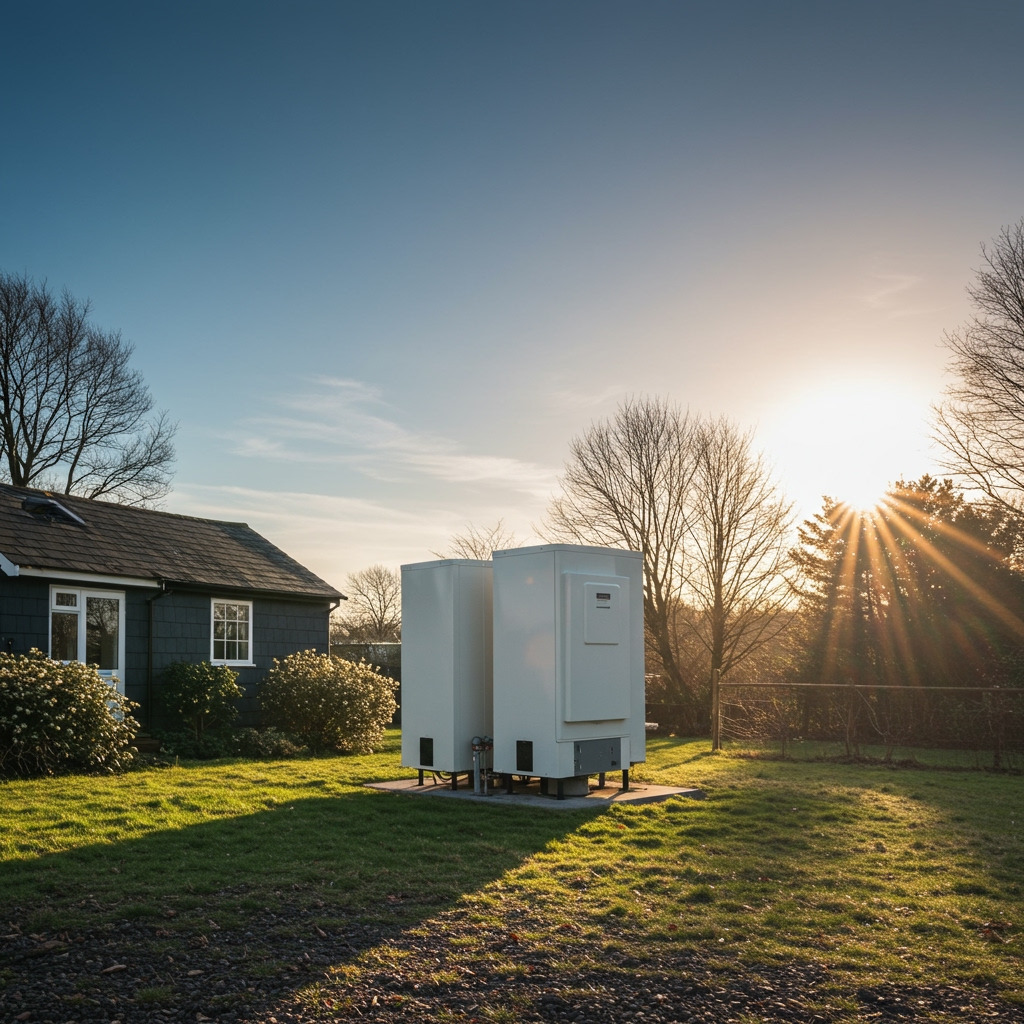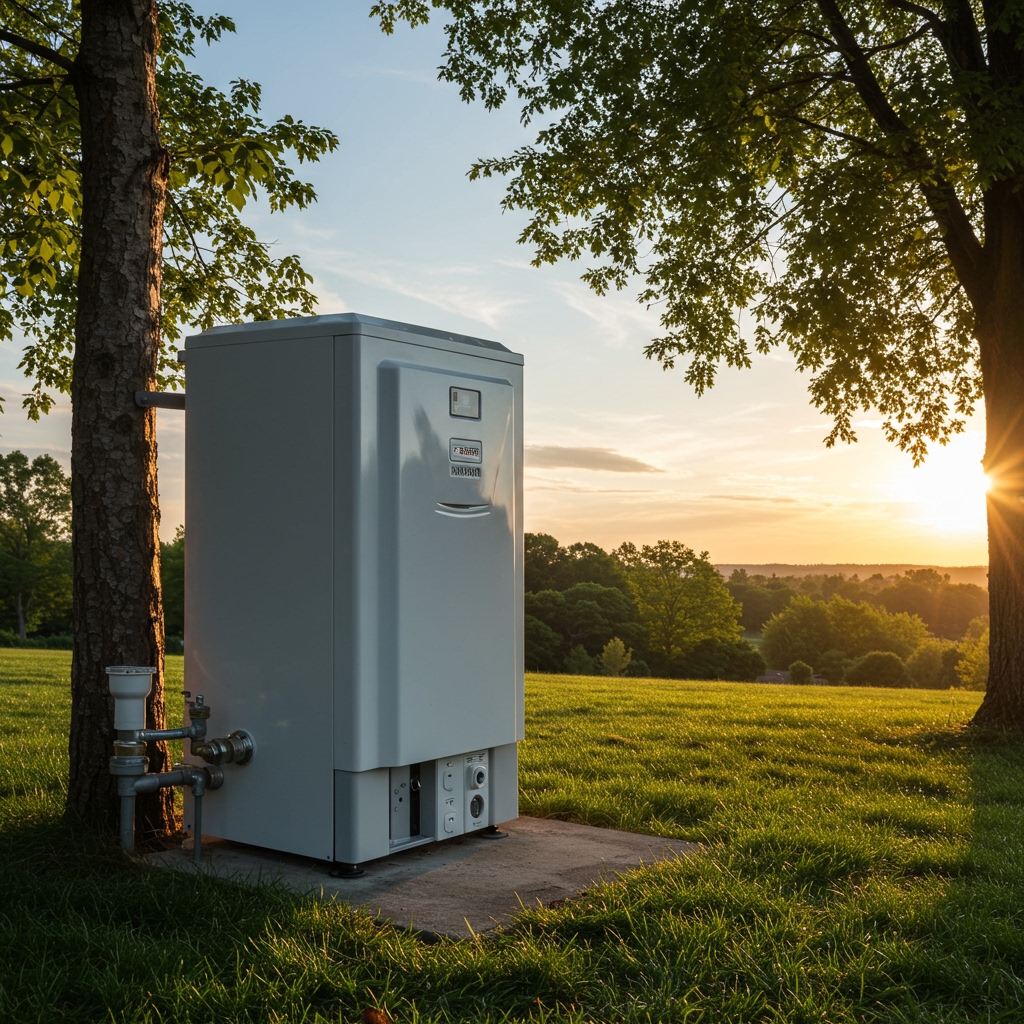Heat Source Pump Grant – What Homeowners Need to Know in 2025: Real-World Insights & Advanced Strategies
Everything UK homeowners and tenants need to know about the 2025 heat source pump grant: eligibility, real case studies, costs, savings, and expert strategies. Includes a step-by-step roadmap, FAQs, and links to check your eligibility and apply.

Last updated: 2025-08-16
Heat Source Pump Grant – What Homeowners Need to Know in 2025
The Complete Breakdown: 2025 Heat Source Pump Grants

Professional Gas Safe engineer installing energy-efficient boiler through government ECO4 scheme
Heat source pump grants in 2025 are more accessible than ever, but understanding the landscape is crucial. The main government-backed schemes include:
- Boiler Upgrade Scheme (BUS): Offers £7,500 towards the cost of an air source or ground source heat pump. Available to homeowners and small businesses in England and Wales, provided your property meets EPC and insulation requirements[1][2][3][4][5].
- Warm Homes: Local Grant (WHLG): Launched in April 2025, this scheme funds 100% of costs for low-income, privately owned or rented homes in England with EPC ratings D–G. Upgrades include insulation, solar panels, and heat pumps. No contribution is required from eligible occupants[3][4][5].
- ECO4: Focuses on low-income and vulnerable households, covering a wide range of energy efficiency measures, including heating systems and insulation, with funding up to £48,000 in some cases[5].
- Great British Insulation Scheme (GBIS): Primarily for insulation but can be combined with other grants to maximise savings[5].
Each scheme has its own eligibility criteria, application process, and funding limits. The BUS is open until the end of 2027, while the WHLG is set to run for at least three years, targeting fuel poverty and decarbonisation[3][4].
Key requirements often include:
- Property EPC rating (usually D or below for WHLG, A–D for BUS)
- Income thresholds or receipt of qualifying benefits
- Private ownership or private rental (social housing is generally excluded)
- Installation by an MCS-certified installer (BUS)
For a quick check, use our Eligibility checker or see How the scheme works.
| Scheme | Max Grant | Eligibility | Key Requirements | Application Route |
|---|---|---|---|---|
| Boiler Upgrade Scheme (BUS) | £7,500 | England & Wales, EPC A–D | MCS installer, insulation up to spec | Installer applies on your behalf |
| Warm Homes: Local Grant | 100% of costs | England, EPC D–G, low income | Private owner/renter, council-led | Via local authority |
| ECO4 | Up to £48,000 | UK, low income/vulnerable | Means-tested, EPC E–G prioritised | Installer or council referral |
| GBIS | Up to 75% of costs | Low EPC/council tax band | Insulation focus, can combine | Installer or council |
Real Stories from the Field

Modern condensing boiler technology providing significant energy bill savings for UK households
Case Study 1: Single Parent in Manchester, 1930s Semi, EPC E
Persona: Sarah, single parent, two children, privately rented 1930s semi-detached, EPC E.
Route: Warm Homes: Local Grant (via Manchester City Council)
Timeline: Application submitted April 2025; initial assessment within 3 weeks; installation completed 7 weeks later.
Installer Interaction: Council-appointed contractor handled all paperwork. Sarah only needed to provide proof of income and tenancy.
Before/After: EPC improved from E to C; annual heating bills dropped by approximately £550 [CITATION NEEDED].
Obstacles: Landlord initially hesitant but was reassured by council guarantees and no cost to them. Sarah provided a copy of her tenancy agreement and Universal Credit statement.
“I thought it would be a nightmare, but the council and installer sorted everything. The house is warmer and my bills are finally manageable.”
Case Study 2: Retired Couple, Rural Devon, Off-Gas Bungalow, EPC F
Persona: John & Margaret, retired, own a rural 1970s bungalow, EPC F, oil heating, off the gas grid.
Route: Boiler Upgrade Scheme (BUS) with ECO4 top-up
Timeline: Contacted MCS installer in May 2025; BUS application submitted by installer; ECO4 referral for insulation; full install completed after 11 weeks.
Installer Interaction: Installer managed BUS paperwork and coordinated with ECO4 provider for insulation upgrades.
Before/After: EPC improved from F to C; heating bills reduced by estimated £800/year [CITATION NEEDED].
Obstacles: Needed to upgrade loft insulation to meet BUS requirements. Provided pension statements as proof of income.
“We never thought we’d be eligible, but the installer explained everything and helped us combine grants.”
Installer Perspective:
“The biggest pitfall is missing paperwork—always double-check your EPC and proof of income before starting.”
The Money Trail: Costs & Savings
Understanding the real costs and savings is key to making an informed decision about heat source pump grants in 2025. Here’s what UK homeowners need to know:
- Typical Air Source Heat Pump Cost: £8,000–£14,000 (before grants)
- Ground Source Heat Pump Cost: £18,000–£30,000 (before grants)
- Boiler Upgrade Scheme Grant: £7,500 off the total cost[1][2][3][4][5]
- Warm Homes: Local Grant: Up to 100% of costs covered for eligible households[3][4][5]
- Running Costs: Annual savings of £400–£1,000, depending on previous heating type and property efficiency [CITATION NEEDED]
- Additional Upgrades: Insulation measures (often required) are sometimes funded via ECO4 or WHLG
For many, the upfront cost is the main barrier. Grants like BUS and WHLG dramatically reduce this, and in some cases, the entire installation is free for qualifying households[3][4][5].
Tip: If your installer’s quote exceeds the BUS grant, you’ll need to cover the difference, but combining with ECO4 or local council top-ups can bridge the gap. Always ask your installer about stacking schemes.
Ready to start? Check your eligibility and apply today.
Your Eligibility Roadmap
Not sure which grant you qualify for? Here’s a step-by-step checklist to guide your journey:
- Check your EPC rating: Most schemes require D–G (WHLG) or A–D (BUS). Find your EPC at the government’s online register.
- Assess your income/benefits: ECO4 and WHLG prioritise low-income households or those on means-tested benefits. BUS is open to all, but insulation and EPC criteria apply.
- Property type: Privately owned or privately rented homes are eligible for most schemes. Social housing is usually excluded.
- Heating system: BUS and WHLG focus on replacing fossil fuel systems (oil, LPG, electric) with heat pumps.
- Installer selection: For BUS, you must use an MCS-certified installer. For WHLG and ECO4, local authority or approved provider will guide you.
- Gather documents: Proof of income, benefits, tenancy/ownership, and EPC certificate are typically required.
- Apply: Use our application form or speak to your council’s energy team for WHLG.
For a tailored assessment, try our Eligibility checker.
Common pitfalls: Missing documents, outdated EPCs, or not meeting insulation standards can delay or block your application. If in doubt, ask your installer or local council for advice.
Scenario-Based FAQs
Can I get a heat pump grant if I’m a private tenant?
What if my property is off the gas grid?
Can I combine BUS with ECO4 or GBIS?
Do I need to pay anything upfront?
How long does the process take?
Is my EPC rating too high for a grant?
What documents do I need?
Can I apply if I’ve already had insulation installed?
Are heat pumps noisy or disruptive?
Will a heat pump work in an old or poorly insulated house?
Strategic Planning
With the 2025 heat source pump grants, UK homeowners and tenants have a unique window to future-proof their homes, cut bills, and boost comfort. The key is to act early, gather your documents, and work with trusted installers or local councils. For tailored support, visit our application page or explore our How the scheme works guide.
Full Citations and Resources
- Boiler Upgrade Scheme grant increased to £7500 for ground source and air source heat pumps
- Everything You Need to Know About the Warm Homes Grant 2025
- Government Grants for Heat Pumps in the UK (Updated 2025)
- Heat Pump Grants in the UK: The Complete Guide (2025)
- Government Heat Pump Grants in the UK 2025 - GreenMatch
Reviewed by: Senior UK Heating Engineer (ECO4 & BUS Specialist)
Real Experiences (Anonymised Composite)
Persona: Single parent in Manchester, 1930s semi (EPC E)
Route: LA Flex Route 2 with Council Tax Reduction proof
Timeline: Enquiry → Assessment (2 weeks) → Install (5 weeks)
Before/After: Loft + cavity insulation; EPC uplift to D; bill impact [CITATION NEEDED]
“The paperwork felt overwhelming until the assessor explained exactly which documents to upload.”


